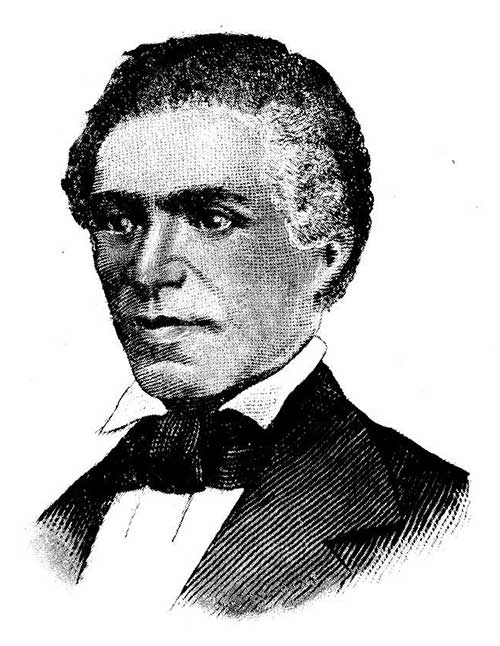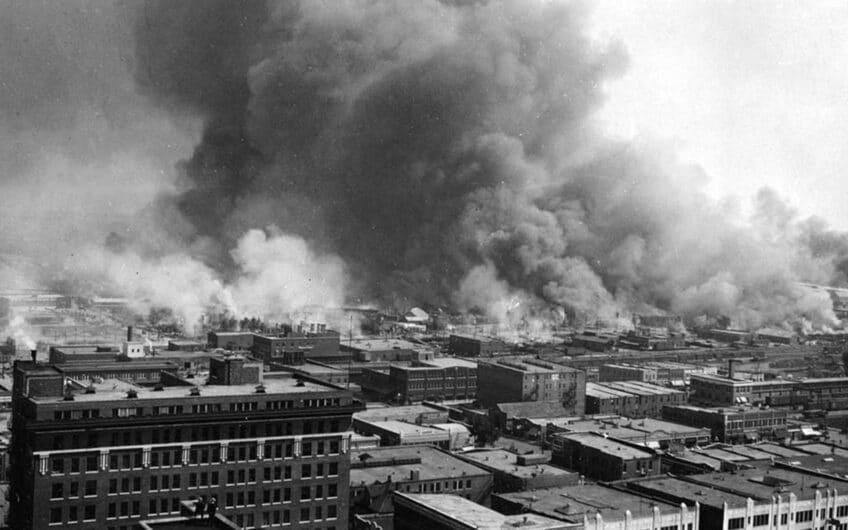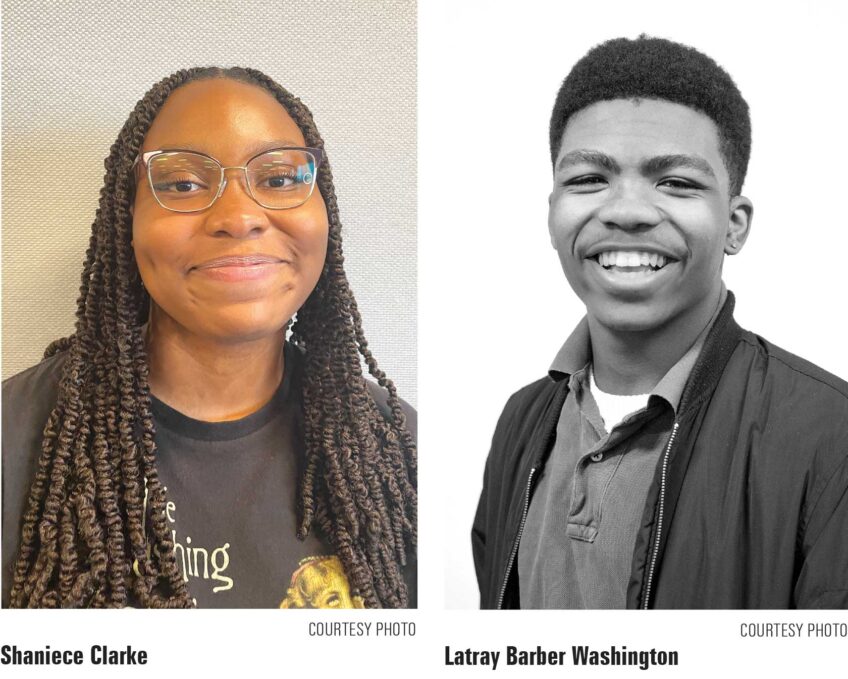Boston’s connection to ‘Freedom’s Journal’
Pioneering black publication relied on Boston contributors, thought leaders

On the evening of Monday, Feb. 20, 1827, a group of prominent African American Bostonians gathered at the home of abolitionist David Walker. Among the guests were John T. Hilton, leader of the black Freemasons in the city; Walker’s neighbor George B. Holmes — a hairdresser, musician and Mason — and the Rev. Thomas Paul, pastor of Boston’s African Baptist Church.

John B. Russwurm

A copy of “Freedom’s Journal”
The meeting was convened to consider the Prospectus for the first African American newspaper, Freedom’s Journal, which would begin publication the following month in New York.
“In the opinion of this meeting,” they resolved, “there is reason to believe that great good will result to the People of Colour by the publication of the ‘FREEDOM’S JOURNAL.’… [W]e freely and voluntarily agree to give it our aid and support, and to use our utmost exertions to increase its patronage.”
From the beginning, Boston’s African American community contributed to Freedom’s Journal in vital and significant ways. Published in New York City from 1827 to 1829, Freedom’s Journal was an international outlet for news and opinion pieces by, about and for African Americans. It was distributed in the United States throughout the North and parts of the South, with agents also in Haiti, England and Canada.
“We wish to plead our own cause,” editors Samuel E. Cornish and John B. Russwurm asserted in their first editorial. “Too long have others spoken for us.”
Freedom’s Journal allowed African Americans to articulate their views on key issues, argue for their rights and learn about the news that white editors and historians had long suppressed.
Short run
Although it was only published for two years — with Russwurm assuming sole editorship after six months — Freedom’s Journal transformed African American life. The scope of the newspaper, which featured commentary and reports from leaders and sources throughout the United States as well as other parts of the world, linked free black communities throughout the urban North and connected African Americans to Haiti and Africa.
Freedom’s Journal established the central role of the black press as a tool for protesting injustice and uplifting the community, and helped shape the careers of many influential writers, orators and social activists. Since it was African American activists and their public protest that inspired and created the American antislavery movement — not white male abolitionists — Freedom’s Journal was influential in the U.S. abolition movement.
Boston happenings
In Boston, David Walker and Rev. Thomas Paul, the newspaper’s agents during its two-year run, were charged with promoting the periodical and obtaining subscribers. John Remond had this assignment in Salem where he was an important community leader; he would later join the Massachusetts Anti-Slavery Society and lead the campaign to desegregate the city’s schools. His children Charles Lenox Remond and Sarah Parker Remond would become important antislavery orators. Walker became famous in his own right for his dynamic and uncompromising denunciation of slavery and colonization in his 1829 “Appeal to the Coloured Citizens of the World.”
The newspaper’s content included articles by and about African Americans in Boston. Boston correspondent F.A., for example, wrote to the newspaper in February 1828 to “argue for something like action and result, in regard to African Education in this country.”
“An Enquirer” from Boston asked in August 1828 about the “derivation of the word” Negro and “the propriety of applying this term” to African Americans. The newspaper also reprinted pieces from Boston publications such as The New-England Galaxy and short, relevant news items about the city, such as a report of a march in Boston of sailors demanding higher wages and the announcement of the arrest in Boston of a “man of colour” from Maryland who was charged by authorities in Philadelphia of “stealing free coloured children from that city, and selling them for slaves.”
Announcements of black Bostonians’ marriages, births and deaths were also included in the newspaper, as were advertisements for David Walker’s new and used clothing store and clothes-cleaning service on Brattle Street.
Freedom’s Journal reported frequently on Walker and his fellow black activists in Boston. In October 1828, the newspaper noted Walker’s contribution to “the fund about to be raised for the purchase of George M. Horton, of North Carolina.” Horton, a North Carolina slave who taught himself to read and write, was a poet whose talents had first become known among students at the University of North Carolina and whose fame eventually spread. Efforts in the North and South were undertaken to purchase his freedom from his master, and African Americans throughout the nation, including Walker, became involved. The effort, unfortunately, did not prove successful.
A similar case in which Walker and fellow Bostonians became involved ended quite differently.
In 1828, Freedom’s Journal featured news about the case of Abduhl Rahahman, an American slave who had been born the son of a ruler in Futa Jallon, a region in Guinea, West Africa; educated in various cities; captured in 1788 after a military campaign; and sold, first to British traders and then to a Natchez, Mississippi, planter.
Freedom fight
In the 1820s, Rahahman gained notoriety when his desire to return to Africa was publicized by a newspaper editor. His master agreed to release him, and in 1828 he became a free man. Rahahman’s wife Isabella was purchased with money raised in Natchez, but they also sought to buy their children’s freedom. In freedom, Rahahman toured cities in the North to raise the requisite funds. At least some of their children were eventually freed and reunited with him and Isabella after they sailed to Africa in 1829.
Freedom’s Journal offered reports of a public dinner given in Boston to raise money for Rahahman’s family, with George B. Holmes as chief marshal, Walker as second marshal and John T. Hilton as third. Walker’s words on the occasion expressed the sharp condemnation of slavery and of whites’ exploitation of Africa that would be elaborated in his “Appeal.”
“Our worthy Guest, who was by Africa’s natural enemies, torn from his country, religion, and friends, and in the very midst of Christians, doomed to perpetual though unlawful bondage, may God enable him to obtain so much of the reward of his labor, as may purchase the freedom of his offspring.”
It is notable that Walker described funds for Rahahman’s family not as compensation for the slaveholders who owned his children but as wages deserved for his labor. Although other proclamations were more conciliatory — Hilton referred to the “liberality of the white men towards” Rahahman — at least one attendee matched, if not exceeded, Walker’s righteous indignation.
Boston waiter and caterer Domingo Williams, chairman of the Committee of Arrangements for the dinner, proclaimed, “May the Slave holders of the world be like the whales in the ocean, with the thrasher at their back, and the sword fish at their belly, until they rightly understand the difference between freedom and slavery.”
Passionate call to action
The following December, Freedom’s Journal reprinted a speech given by Walker to the Massachusetts General Colored Association, an organization founded in 1826 by Walker, Hilton and others to fight for equal rights and the abolition of slavery. In this impassioned speech, Walker called on his audience to seek the unity, education, and improvement of their condition that their white oppressors tried to suppress.
“Inactivity” in the face of oppression was unacceptable, Walker asserted, and cooperation was vital: “Two millions and a half of colored people [live] in these United States, more than five hundred thousand of whom are about two-thirds of the way free. Now, I ask, if no more than these last were united (which they must be, or always live as enemies) and resolved to aid and assist each other to the utmost of their power, what mighty deeds would be done by them for the good of our cause?”
Just as African American Bostonians met to pledge their “aid and support” for Freedom’s Journal before the first issue emerged, so too did they reaffirm their commitment a year into its run.
Struggle to survive
The newspaper reported that a meeting was held in Boston in March 1828 “for the purpose of enquiring whether the Freedom’s Journal had been conducted in a manner satisfactory to the subscribers and to the Coloured community at large.” Without providing details, the account mentioned “opposition” to the newspaper, which the meeting’s attendees countered strongly; Freedom’s Journal was also, by this time, suffering financially, and attention was needed to ensure its continued existence.
George B. Holmes spoke first, urging African Americans to see “the necessity of supporting [Freedom’s Journal] with something more substantial than good wishes” and to pay their bills promptly.
Hilton declared that support for the newspaper constituted “patriotism,” and Walker connected Freedom’s Journal to the struggle to obtain education, about which he would elaborate in his “Appeal”: “The very derision, violence and oppression, with which we as a part of the community are treated by a benevolent and Christian people, ought to stimulate us to the greatest exertion for the acquirement both of literature and of property.”
Although Russwurm determined the following year to give up the publication of Freedom’s Journal, Boston agents Walker and Paul — as well as Salem’s Remond — were listed in its pages until the last issue.






